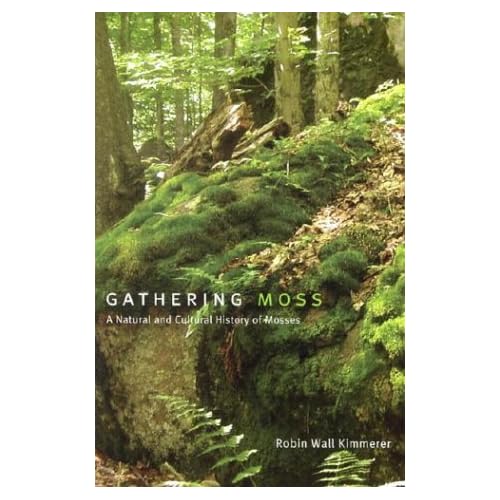Gathering Moss is an artful blend of natural history for the non-specialist, personal narrative, and cultural reflection. The voice on the page is at once byrologist, mother, teacher, and writer of Potawatomi heritage, sharing her insights of how careful study of the simple lives of mosses bear lessons for how to live in the world.
In an early chapter, she describes the effort her biology students put into learning the ornate Latin names of mosses (of course, being so easily overlooked, most mosses lack a common name). But learning the names of species and their parts, Kimmerer points out, has its rewards.
"Having words for these forms makes the differences between them so much more obvious. With words at your disposal, you can see more clearly. Finding the words is another step in learning to see."LANGUAGE as a way of SEEING! It's true. Yesterday, seasonable weather returned, making this a cool and rainy weekend in northern Vermont. A good time to forage for some spring edibles! Out in a drizzle with friends hunting fiddleheads, I was guided by the fact that I was looking not for just any young fern's curled fronds but for those of the ostrich fern (matteuccia struthiopteris), whose tall vertical stalks feather out in fronds resembling the feathers of an ostrich. Equipped with this knowledge, the brown feather-like remains of last year's stalks became easy to spy along the river bank (even from the roadside as we drove). At the base of each I found what I was looking for-- numerous fat, green clumps of curled fronds, like the scrolls of violins. My friends and I gathered a small bagful each, and I later sauteed them in a bit of olive oil and diced ramps (wild leeks) that we had foraged elsewhere yesterday. Knowing what to look for (by name)--this kind of seeing can be delicious.
